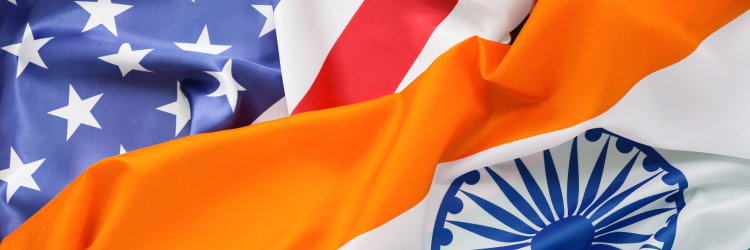President Biden and Prime Minister Modi announced a U.S.-India initiative on Critical and Emerging Technology (iCET) in May 2022, and its inaugural meeting just took place in Washington, D.C.
Discussions centered on opportunities for greater cooperation in critical and emerging technologies, co-development and coproduction, and ways to deepen connectivity across innovation ecosystems. They gave value to “innovation bridges” in key sectors, including through expos, hackathons, and pitch sessions, and established biotechnology, advanced materials, and rare earth processing technology as areas for future cooperation.
The United States and India are launching new bilateral initiatives and welcoming further cooperation between our governments, industry, and academia in the following areas:
Strengthening innovation ecosystems to include a Research Agency Partnership between the National Science Foundation and Indian science agencies to expanding collaboration in such areas as artificial intelligence, quantum technologies, and advanced wireless. Other programs will facilitate research and industry collaboration, develop common standards and benchmarks, and collaboration on High-Performance Computing (HPC).
Defense innovation and technology cooperation, including developing a bilateral Defense Industrial Cooperation Roadmap with an initial focus on exploring projects related to jet engines, munition-related technologies, and other systems.
General Electric applied to jointly produce jet engines that could power jet aircraft operated and produced indigenously by India. Also included are long-term R&D cooperation focusing on identifying maritime security and intelligence surveillance reconnaissance (ISR) operational use cases.
Resilient semiconductor supply chains supporting the development of a semiconductor design, manufacturing, and fabrication ecosystem in India, workforce development, and joint ventures and technology partnerships on mature technology nodes and packaging in India. A task force involving the U.S. Semiconductor Industry Association (SIA) in partnership with the India Electronics Semiconductor Association (IESA) to develop a “readiness assessment” identifying near-term industry opportunities and longer-term strategic development of semiconductor ecosystems.
Space to include cooperation on human spaceflight, advanced training for an Indian Space Research Organization (ISRO)/Department of Space astronaut at NASA Johnson Space Center as well as greater collaboration with NASA.
STEM talent via a new joint task force of the Association of American Universities and leading Indian educational institutions, including Indian Institutes of Technology, which will make recommendations for research and university partnerships.
Next-gen telecom, including launching a public-private dialogue on telecommunications and regulations and advancing R&D in 5G and 6G.
The next iCET meeting will be in New Delhi later in 2023.

